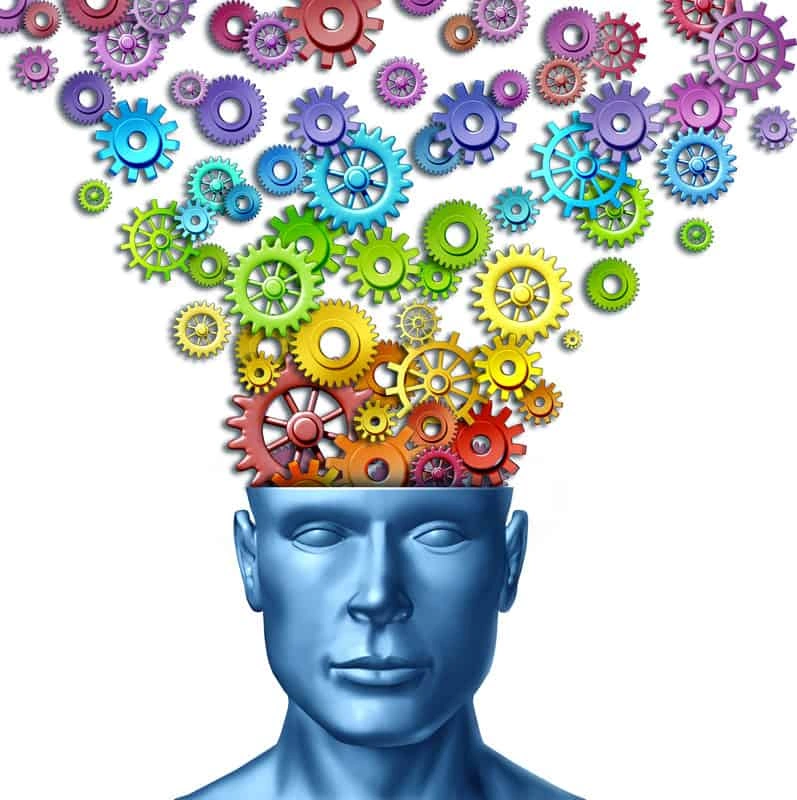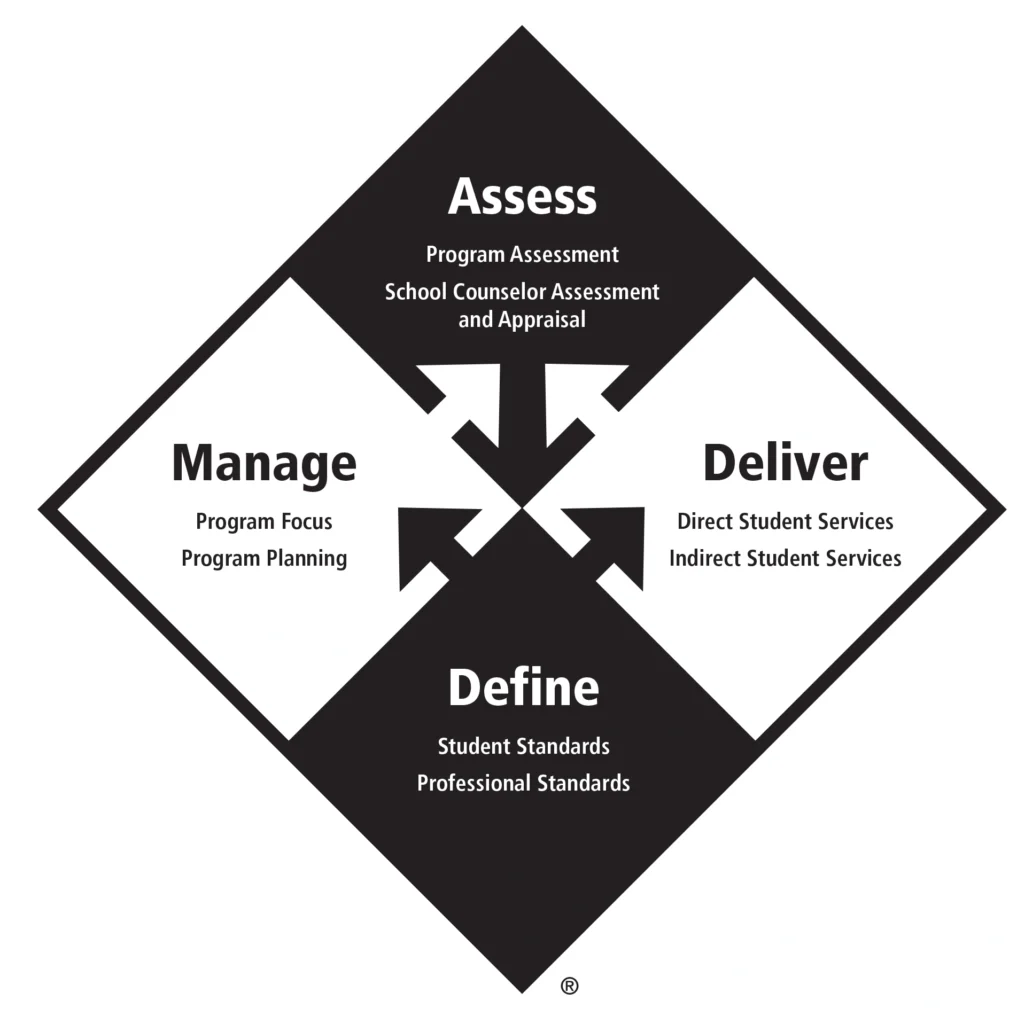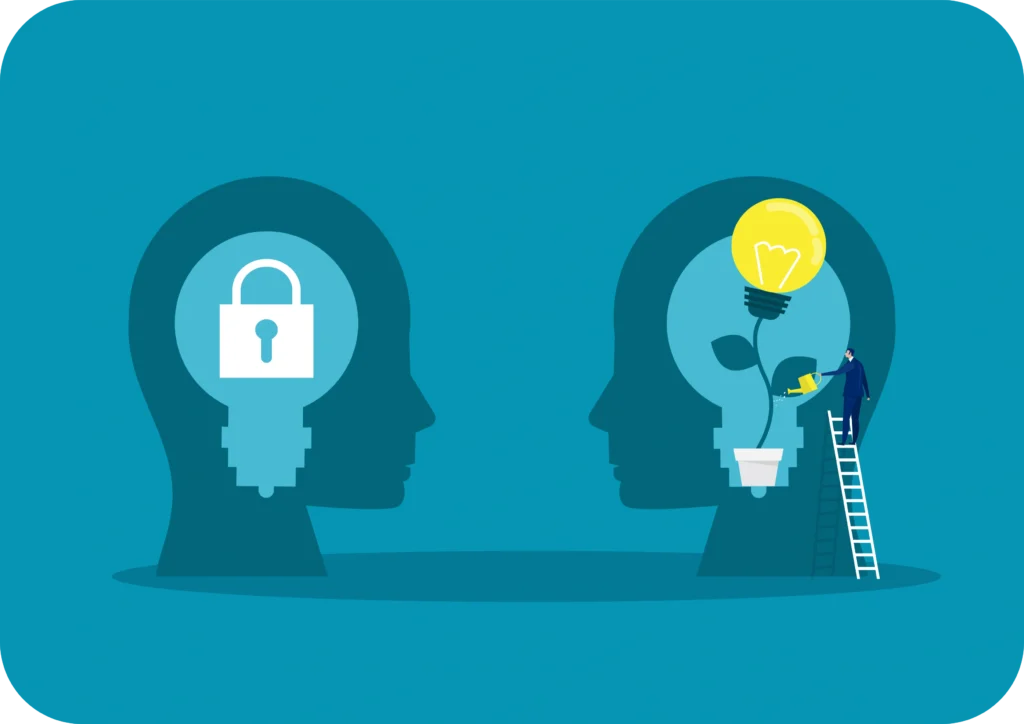Understanding ASCA Mindsets and Behaviors for Better Student Outcomes
More Than Just Grades: Why Mindsets and Behaviors Matter
Think back to a student you’ve encountered who faced challenges, not because they weren’t bright, but because they didn’t quite believe in their own capabilities. Or perhaps you recall a student with evident intelligence who found it tough to work alongside others or manage their time effectively. It’s clear to all of us that thriving in school, and indeed in the broader scope of life, demands more than just achieving high marks on tests.
Success is intricately linked to developing the appropriate mindsets and behaviors—an internal navigation system that steers students toward strength, a deep understanding of oneself, and ultimately, the realization of their fullest potential. This is precisely where the ASCA Mindsets and Behaviors framework becomes invaluable. It provides you with a strategic guide to foster these critical life proficiencies.
Table of Contents
What are the ASCA Mindsets and Behaviors?
Let’s break down what we mean by “ASCA Mindsets and Behaviors.” This framework is a critical part of the American School Counselor Association (ASCA) National Model. It is designed to equip you, as educators and parents, with the tools to develop students beyond their ability to solve academic problems. You are nurturing the whole child – the way students think, believe, and act. Think of it as a compass, guiding you in nurturing the inner qualities that lead to outward success.
Defining the Framework
The American School Counselor Association (ASCA) stands as a vital resource in the realm of education, championing the role of school counselors and their impact on student growth. The ASCA National Model serves as a comprehensive blueprint, outlining how school counseling programs can be structured to effectively promote student achievement. Within this model, “Mindsets and Behaviors” form a foundational element.
These are not arbitrary concepts; they are carefully selected attitudes, knowledge, and skills that research indicates are essential for academic and personal triumphs. They have been developed through careful research, drawing on educational best practices and empirical studies (you can find this research on the ASCA website and in various academic journals). This framework provides a common language and a set of standards that help create a unified approach to student support.
The Six ASCA Mindsets

These mindsets are the internal beliefs that guide a student’s approach to learning and interacting with the world. When you instill these mindsets, you are helping students build a strong foundation of self-awareness and belief in their potential.
Here are the six ASCA Mindsets:
- Belief in the development of the whole self, including a healthy balance of mental, social/emotional, and physical well-being. This is about understanding that you are more than just your academic performance. It’s about valuing your mental health, your relationships, and your physical health as integral parts of who you are.
- Self-confidence in the ability to succeed. This is the “I can do it” attitude. It’s about believing that you have the capacity to overcome challenges and achieve your objectives, no matter how ambitious they may seem.
- Sense of belonging in the school environment. Feeling connected to your school community is crucial. It’s about feeling accepted, respected, and valued by your peers and teachers. When you feel like you belong, you’re more likely to engage fully in your learning.
- Understanding that postsecondary education and life-long learning are necessary for long-term career success. This mindset is about recognizing that learning doesn’t stop after high school. It’s a continuous journey that opens doors to new opportunities and helps you adapt to an ever-changing world.
- Belief in using abilities to their fullest to achieve high-quality results and outcomes. This is about striving for excellence, not just getting by. It’s about taking pride in your work and pushing yourself to reach your full potential in everything you do.
- Positive attitude toward work and learning. This is about finding joy in the process of learning and approaching challenges with optimism. When you have a positive attitude, obstacles seem less daunting, and you’re more likely to persevere.
Categories of the ASCA Behaviors for Learning
While mindsets are the internal beliefs, behaviors are the outward actions that demonstrate these beliefs. They are the tangible skills that you can observe and measure. As you work with students, you’ll focus on helping them develop and refine these behaviors. They are grouped into three categories:
Table: ASCA Behavior Standards
| Category | Description | ASCA Behavior Standards |
|---|---|---|
| Learning Strategies | Processes and tactics students employ to aid in the cognitive work of thinking, remembering or learning. | Students will: 1. Demonstrate critical-thinking skills to make informed decisions; 2. Demonstrate creativity; 3. Use time-management, organizational and study skills |
| Self-management Skills | Self-regulation processes, such as managing emotions and behaviors, setting goals and delaying gratification to achieve greater goals. | Students will: 4. Demonstrate ability to assume responsibility; 5. Demonstrate self-discipline and self-control; 6. Demonstrate ability to work independently; 7. Demonstrate perseverance to achieve long- and short-term goals |
| Social Skills | Acceptable interpersonal behaviors that improve social interactions, such as cooperation, communication, respect and conflict resolution. | Students will: 8. Demonstrate empathy, respect and compassion for others; 9. Demonstrate effective oral and written communication skills and listening skills; 10. Create positive and supportive relationships with other students |
Let’s take a closer look at each of these categories:
- Learning Strategies: These are the tools and techniques students utilize to understand, process, and retain information. When you help students develop effective learning strategies, you are giving them the power to become independent and successful learners. You are ensuring that they have the ability to approach new concepts with confidence and curiosity.
- Examples: Note-taking methods, active reading techniques, using graphic organizers, effective study habits, how to apply critical thinking to solve problems, and displaying ingenuity in work.
- Self-Management Skills: These are the abilities that allow students to regulate their emotions, thoughts, and behaviors effectively. They are the foundation for self-discipline, resilience, and achieving objectives. When you nurture self-management skills, you are equipping students with the ability to navigate challenges, stay focused, and persevere in the face of setbacks. You are guiding them to take charge of their behavior and emotions.
- Examples: Setting SMART (Specific, Measurable, Achievable, Relevant, Time-bound) objectives, managing stress, controlling impulses, staying organized, taking accountability for your actions, developing self-control, working autonomously on tasks, and persisting through difficult situations.
- Social Skills: These are the interpersonal skills that enable students to build positive relationships, communicate effectively, and work collaboratively with others. When you foster social skills, you’re helping students develop empathy, respect, and the ability to resolve conflicts peacefully. You are helping them learn how to navigate social situations with confidence.
- Examples: Active listening, clear communication, cooperation, empathy, conflict resolution, showing respect for others, and building healthy relationships.
Why are the ASCA Mindsets and Behaviors Important for Student Outcomes?

You might be wondering, “Why should I prioritize these mindsets and behaviors? How do they truly impact a student’s life?” The answer is simple: they are the bedrock of not just academic success but also of a fulfilling and meaningful life.
Linking Mindsets and Behaviors to Academic Achievement
Research consistently demonstrates a strong correlation between positive mindsets and improved academic performance. When students believe they can learn and grow (a growth mindset), they are more likely to embrace challenges, persevere through difficulties, and ultimately achieve higher levels of academic success. Consider the work of Carol Dweck, a renowned psychologist whose research on mindset has revolutionized the field of education. Her studies have shown that students with a growth mindset are more likely to:
- Embrace challenges: They see challenges as opportunities for growth rather than as threats to their self-worth.
- Persist in the face of setbacks: They don’t give up easily when they encounter obstacles. They view setbacks as temporary and as opportunities to learn and improve.
- See effort as the path to mastery: They understand that effort is essential for developing skills and achieving goals.
- Learn from criticism: They are open to feedback and use it to improve their performance.
- Find lessons and inspiration in the success of others: They are inspired by the achievements of others and see them as examples of what is possible.
Similarly, behaviors like organization, time management, and effective study skills directly impact a student’s ability to perform well in school. When students are organized, they can manage their workload effectively, prioritize tasks, and meet deadlines. When they have good time management skills, they can balance their academic responsibilities with other activities and avoid feeling overwhelmed. And when they have effective study skills, they can learn and retain information more efficiently. These behaviors are the building blocks of academic achievement. They provide the structure and discipline necessary for students to succeed in their studies.
Beyond the Classroom: Preparing Students for Life
The ASCA Mindsets and Behaviors are not just about improving grades; they are about preparing students for a successful and fulfilling life beyond the classroom. They are the foundation of social-emotional learning (SEL), which is the process of developing the self-awareness, self-control, and interpersonal skills that are vital for success in school, work, and life.
Here’s how these mindsets and behaviors contribute to a student’s overall well-being and prepare them for the challenges and opportunities that lie ahead:
- Improved Relationships: Social skills, such as empathy, communication, and conflict resolution, are essential for building and maintaining healthy relationships. When students can understand and respond to the emotions of others, communicate their own needs effectively, and resolve disagreements peacefully, they are more likely to have positive and fulfilling relationships with family, friends, and colleagues.
- Better Decision-Making: Self-management skills, such as impulse control and considering consequences, are crucial for making sound decisions. When students can think before they act and weigh the potential outcomes of their choices, they are more likely to make decisions that align with their values and long-term goals.
- Enhanced Self-Regulation: The ability to manage one’s emotions, thoughts, and behaviors is essential for navigating the ups and downs of life. When students can regulate their emotions effectively, they are better equipped to handle stress, cope with adversity, and maintain their well-being in the face of challenges.
- Increased Resilience: A growth mindset and perseverance are key components of resilience. When students believe in their ability to learn and grow and are willing to persist through difficulties, they are more likely to bounce back from setbacks and overcome obstacles.
- Career Readiness: The ASCA Mindsets and Behaviors are highly valued in the workplace. Employers seek individuals who are self-motivated, responsible, adaptable, and able to work effectively in teams. By developing these mindsets and behaviors, students are preparing themselves for success in their future careers.
Creating a Positive School Climate
The impact of focusing on ASCA Mindsets and Behaviors extends beyond individual students; it has the power to transform the entire school climate. Imagine a school where these principles are woven into the fabric of daily life. You’d likely observe:
- A More Supportive and Inclusive Environment: When students feel a sense of belonging and are equipped with social skills like empathy and respect, they are more likely to create a welcoming and inclusive atmosphere for everyone.
- Reduced Bullying and Conflict: By promoting conflict resolution skills and fostering a culture of respect, schools can significantly reduce instances of bullying and create a safer environment for all students.
- Increased Student Engagement: When students believe in their ability to succeed and are actively developing learning strategies, they are more likely to be engaged in their studies and participate actively in class.

Frequently Asked Questions (FAQ) about ASCA Mindsets and Behaviors
Let’s address some common questions you might have about this framework:
What is the difference between Mindsets and Behaviors in the ASCA framework?
This is a great question! Think of it this way: Mindsets are the internal beliefs and attitudes that a student holds about themselves, their abilities, and their place in the world. They are the thoughts and feelings that drive their actions. Behaviors, on the other hand, are the observable actions that a student demonstrates. They are the outward expressions of their internal mindsets. For example, a student with a growth mindset (belief that abilities can be developed) might demonstrate perseverance (behavior) when faced with a challenging task.
Are the ASCA Mindsets and Behaviors only for students who are struggling?
Absolutely not! These mindsets and behaviors are beneficial for all students, regardless of their current level of academic achievement or social-emotional development. They are about promoting growth and development across the board, helping every student reach their full potential. They provide essential tools and skills that will serve them well throughout their lives.
How can I learn more about implementing ASCA Mindsets and Behaviors in my school?
The American School Counselor Association (ASCA) website (www.schoolcounselor.org) is an excellent resource. You’ll find a wealth of information there, including research, articles, webinars, and professional development opportunities. You can also connect with your school counselor, who can provide guidance and support tailored to your school’s specific needs.
What is the main goal of the ASCA Mindsets and Behaviors?
The overarching aim is the holistic development of every student. It’s about moving beyond a narrow focus on academics to nurture the social, emotional, and personal growth that is essential for students to thrive in all aspects of their lives. This framework provides schools with a roadmap to cultivate well-rounded individuals who are prepared for success in school, in their future careers, and in their personal lives.
Conclusion – Investing in the Future: The Power of ASCA Mindsets and Behaviors
The ASCA Mindsets and Behaviors offer a powerful framework for fostering student success that goes far beyond academic achievement. By intentionally cultivating these essential skills, you are making a profound investment in the future of your students. You are equipping them with the tools they need to navigate the challenges and opportunities of life with confidence, resilience, and a deep sense of purpose.
Call to Action
Let’s commit to embracing this framework and actively working together—educators, parents, and community members—to create learning environments where all students can develop the mindsets and behaviors that will empower them to thrive. Share this article with your colleagues, discuss it with your school’s leadership team, and start exploring how you can integrate these concepts into your daily practice. Start small, be patient, and celebrate the progress you make along the way. By investing in the ASCA Mindsets and Behaviors, we are not just improving test scores; we are empowering a generation of resilient, self-aware, and compassionate individuals ready to make a positive impact on the world.


Such a beautifully written piece—so inspiring!
The advice here is so practical and useful. I’ll definitely apply it!
you’ve given me a lot to think about today. Can’t wait to read more from you!